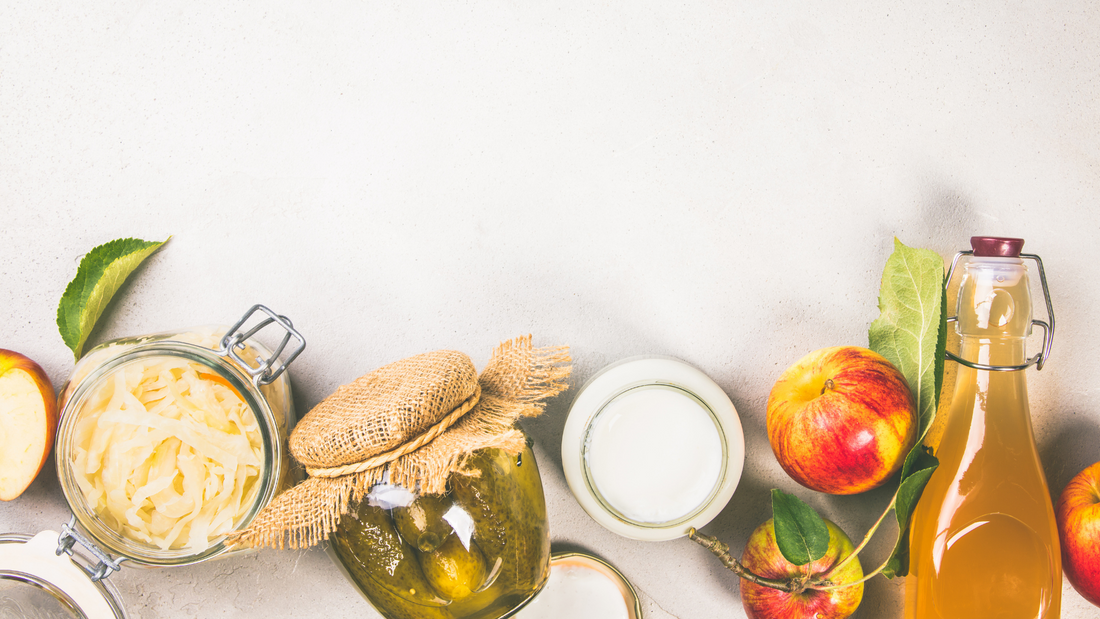A healthy and natural process
Fermentation is an ancient technique used for preserving food that dates back to the late Stone Age. It not only preserves food but also changes its composition, taste, and texture. Fermentation is a natural and healthy process that offers many benefits, which is why it is becoming increasingly popular again.
Which foods can be fermented?
Various types of foods can be fermented. Common examples include vegetables, fruits, and dairy products. However, it's worth noting that fish, meat, and beverages can also undergo fermentation. Approximately 30% to 40% of our food consumption is derived from fermented products. Some well-known examples are sauerkraut, yogurt, tofu, and cheese. Even beverages like wine, beer, coffee, tea, soy sauce, and chocolate can go through fermentation.
Bacteria, fungi and yeast?
Fermentation relies on the action of bacteria, fungi, or yeast. For instance, bacteria convert sugars into lactic acid during the production of cheese, sausage, and yogurt. This fermentation process transforms lactose, the natural sugar in milk, into a simpler form, making it easier for individuals with lactose intolerance to consume fermented dairy products like yogurt or kefir. Fungi also play a role in fermentation; for example, tempeh is produced from cooked soybeans. Yeast, on the other hand, converts sugar into carbon dioxide and alcohol, as seen in the making of bread, wine, and beer.
Fermentation improves health value
Aside from its preservation benefits, fermentation enhances the health value of foods. It increases the digestibility of food, allowing for better absorption of nutrients by the body and benefiting digestion. The beneficial bacteria present during fermentation remain in the final product. When consuming fermented food, you also intake a significant amount of living microorganisms along with easily accessible nutrients, which can have a positive impact on your gut health.
The advantages of fermentation at a glance
- Fermentation enhances the taste and texture of foods.
- Fermentation increases the accessibility of vitamins and bioactive nutrients.
- Fermentation improves the digestibility of food.
- Fermentation reduces or eliminates antinutrients found in vegetables and other foods, such as grains, nuts, and legumes.
- Fermentation promotes the growth of beneficial live bacteria.
- Fermentation extends the shelf life of foods.
Fermented dietary supplements
Fermentation is also applied to nutrients, such as vitamins and herbs, in the production of dietary supplements. Like fermented foods, fermented supplements provide easily absorbable ingredients for the body. In probiotic formulas, fermentation is used to obtain a high number of beneficial living microorganisms.
7M: fermented and packed with good bacteria
7M, a probiotic concentrate, stands out in several aspects. It contains easily accessible bioactive herbs and is packed with beneficial bacteria, specifically lactobacilli and bifidobacteria. 7M is produced under strict microbiological control, ensuring that each bottle contains only desirable beneficial bacteria. It offers unparalleled diversity and an impressive number of colony-forming units (CFUs) with 28 strains of lactic acid bacteria. With 7M, you can experience the benefits of a daily dose of safe and beneficial nature in a bottle!







